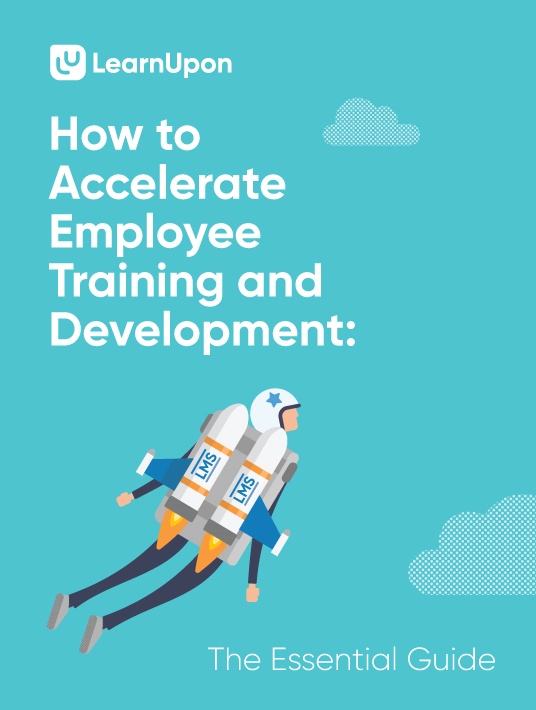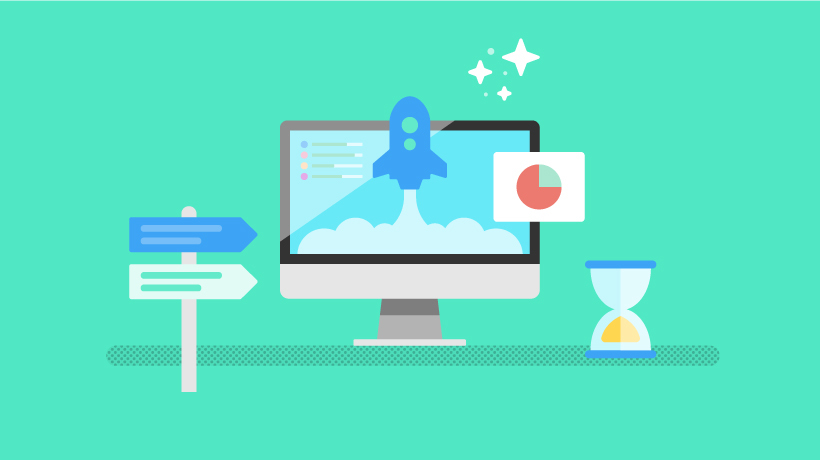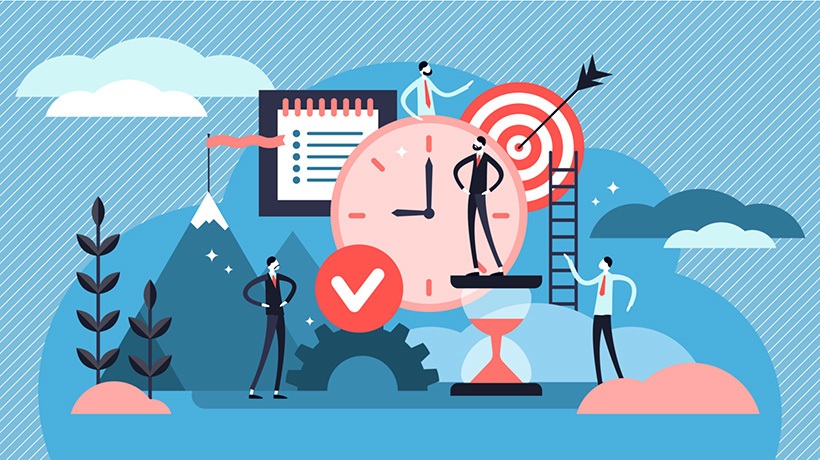How To Create Employee Development Goals
The most successful businesses set precise, attainable goals. These goals help clarify what they want to achieve and enable them to create course content that aligns with these objectives. Doing this helps you measure the return on investment and assess your training's impact more easily. Importantly, it makes the entire training process more productive for your team and organization. A recommended approach to setting your employee development goals is using the SMART method - a workflow to plan and reach targets.

What Are SMART Employee Development Goals?
SMART is an acronym standing for specific, measurable, attainable, relevant, and timely. It is a principle used to manage a project that helps businesses plan, establish, and reach a distinct goal. It’s popular amongst businesses, particularly those planning employee training and development, as it’s simple, but highly effective. It helps you narrow in on what you need to achieve through employee training and focuses your efforts, increasing your chances of realizing that goal.
1. Specific
To develop a productive employee development program, you need to have a specific target. One that states exactly what you want to achieve. It’s often the case that businesses set wishy-washy goals, for example:
“We want to create onboarding training for employees.”
However, the key to having productive, achievable targets is to be as specific as possible. For example:
“We want to introduce an onboarding training workflow for our new hires so that they’re effectively performing their role within 6 weeks of joining.”
See the difference? This is a much clearer target that enables you to create a plan to reach it in a productive way. Keep in mind that you can set multiple targets for your employee training and development strategy, like one for implementing your LMS, another for introducing health and safety training, etc. Just make sure they are clear-cut and defined.
2. Measurable
Setting specific goals is a wise first step, but you also need to consider how you will measure these goals. There is no point in having training and development aims if you’ve no plan of action on how to evaluate them. Again, being specific with how you’ll measure your goals is key. Let’s take our employee onboarding example again. Your game plan to measure their success might be:
- Use your LMS reports - Course completion rates, pass rates, training histories, etc, reports will show if new hires interacted with the training and how well they performed.
- Survey and course reviews - This will show what employees think of the training and whether it’s helpful and understandable.
- Face-to-face feedback from managers, instructors, and employees - Find out how teams are responding to the training and if it’s having the desired impact.
3. Achievable
Building a productive employee development strategy isn’t about throwing everything but the kitchen sink into training. It’s about setting attainable goals. Therefore, its essential to plan how you’ll be reaching the goals and decide if they are actually achievable. Now is the time to get into the weeds and figure out the key aspects of your training and how they’ll be achieved. Ask yourself what tools you’ll be using, what resources you’ll need, and whether everything will be available to you when it’s needed.
If we go back to the employee onboarding, example questions to ask would be:
- Is it possible for the team to launch training for every new hire?
- Does 6 weeks' onboarding work for every team?
- Will your LMS have the features needed to implement the training?
- Do you have the tools you need?
- Do you have managers and instructors to help deliver the training?
Dive into the minutia and find out what needs to happen to reach your goal. That way you’ll know you’re not setting yourself up for a fall and that you can create a plan that effectively reaches the goals.
4. Relevant
With each goal you set up, it’s critical to think about the big picture. It’s important that your training and development goals align with what your organization is trying to achieve overall. Simply, are they actually relevant to your business? Take the goal you want to reach, consider how it realistically is going to help your business to where it wants to be. Again, with new hire onboarding, a business could have a high employee turnover rate, therefore effective onboarding is a prudent goal to tackle this issue.
5. Timely
For both long and short term goals, this stage is all about determining if they’re achievable within a set timeframe. So, it’s essential you consider your deadlines and calculate if it’s possible to meet them. As employee and development training has a lot of moving parts, separating out each element and doing mini goals for each one is a beneficial way to discover if your due dates will be met. These could include the length of time it takes to:
- Implement your LMS
- Create training materials
- Roll out training to each team
- Measure the first set of results
Again, always remember to be realistic about what is achievable within a timeframe so that you can practically reach your goals.
Start Using SMART Goals For Employee Development
SMART goals are a clever, implementable framework. Helpfully, they can also be used to develop lots of your training goals, from introducing an LMS company-wide, to creating the courses you want to deliver, to enacting a training plan across your organization. They’re also quick to develop. You only have to invest a small amount of time, but it helps you create a plan of action that is constructive and aids you in speedily reaching your eLearning goals. Download the eBook How to Accelerate Employee Training and Development to explore SMART Employee Development Goals as and much more when it comes to accelerating Employee Training And Development.
If you want to discover more fantastic features you need to implement to guarantee the best possible employee training, check out the Make Your Employee Training Robust And Engaging: How To Get The Perfect Balance webinar. It is brought to you by LearnUpon and teaches everything you need to know to make your employee training exceptional.










